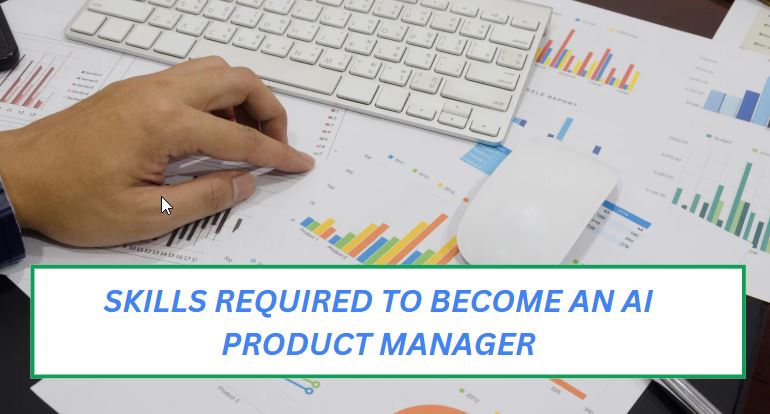Artificial intelligence is changing how humans work in several industries, such as health and digital marketing. From automating repetitive tasks to advanced reasoning, AI is helping us achieve more with less time and money. AI researchers are at the forefront of this changing dynamics. If you’re interested in neural networks, machine learning, and algorithms, a career in AI research might be the perfect fit for you. In this guide, we’ll dive into how you can become an AI researcher step-by-step. Let’s dive in.
What Does an AI Researcher Do?
AI researchers work on theories and experimentation to find new growth opportunities in the industry. The role is different from that of AI engineers, who work to build practical applications. The job of a typical AI researcher is to:
- Develop new algorithms
- Work in labs or academia
- Solve problems in machine learning, robotics, and NLP
These responsibilities can vary depending on the organizational goals and your experience.
Build Foundational Knowledge
The first step of getting any research-based job is building the foundations.
Educational Background
For the AI research role, this means getting a Bachelor’s degree in computer science, maths, or statistics. AI research roles require you to have a Master’s degree (Example: Applied AI). If you don’t want to pursue this path, there’s an alternative route: Getting certified from reputable platforms like Datacamp or self-study programs, but a PhD gives you an edge.
You May Also Like: What Does an AI Product Manager Do?
Core Skills
While you pursue the required education, focus on developing the skills necessary to perform the job effectively. This includes Math & Stats (Calculus, probability), programming (Python, R, etc.), ML Frameworks (TensorFlow), and research (Learning to read and write academic papers).
Specialize in a Subfield
AI research is a broad field. Specializing in a subfield can help you stand out. One of the most popular specializations these days is Natural Language Processing (NLP) (Example: ChatGPT). NLP jobs grew 120% in 2024 because of breakthroughs in LLMs. Another popular area is Computer Vision which powers technologies like self-driving cars and facial recognition. The growth in these fields is staggering. Pick one and gain knowledge and skills until you’re ready to go for a role as an AI researcher. Consider contributing to open-source platforms like TensorFlow to demonstrate your knowledge and skills.
Gain Research Experience
Hands-on experience almost always trumps theoretical knowledge. Once you’ve built your foundations, go for internship roles or contribute to open-source platforms to hone your skills. You can try and land an internship role in AI labs like Google AI. If you’re aiming higher than that, consider publishing research papers. According to data, 70% of hired AI researchers have a published research paper. Even if you get your work published in a small publication, it can prove to be a major boost for your career.
Build a Strong Portfolio
A strong portfolio often speaks louder than a resume. This is because people can see your knowledge and skills in action. To build a solid portfolio in AI research, we’d suggest creating and optimizing your GitHub profile. Showcase your past projects and results on your profile. Also, you can start a blog or a YouTube channel and explain complex concepts in an easy-to-understand manner to build your authority on the topic. In addition, consider participating in Kaggle competitions. This can help you:
- Sharpen your skills
- Get the attention of potential employers/recruiters
You May Also Like: Ethics in AI and Machine Learning
Network and Stay Updated
Artificial intelligence is rapidly advancing. As a professional, you can’t get away with outdated information or one-time education. You need to keep yourself up to date on the latest developments and trends. Networking with the right people and on the right digital platforms is crucial to keep yourself relevant these days. Start following thought leaders like Andrew Ng and interact with fellow professionals in Facebook and LinkedIn groups.
Find a Job or PhD in AI Research
When you have the required knowledge and skills and a strong portfolio, it becomes easier to get a well-paying job. Even better if you have some internship experience from a reputable organization. From here, you can take two main paths: An industry job or an academic/PhD path. Key roles you can target to get a job are research scientist, applied scientist, machine learning engineer, and research engineer. To apply for a job, explore AI labs like OpenAI and Anthropic, tech giants like DeepMind and NVIDIA, startups, and non-tech sectors investing in AI research. And, if you want to join an organization without having to go the PhD route, build a strong research base with self-publication and build a personal brand on social media.
Becoming an AI Researcher: FAQs
Let’s address some frequently asked questions about becoming an AI researcher.
Do I Need a PhD to Become an AI Researcher?
While not mandatory, most research-based AI roles require you to have a relevant PhD degree. However, you can bypass this requirement with an exceptional publication record.
What’s the Salary Range for AI Researchers?
Companies investing in artificial intelligence research are willing to offer handsome salaries to people who can help them. As an entry-level AI researcher, you can expect a salary range of $100k – $130k per year.
How Long Does It Take to Become an AI Researcher?
The typical path to becoming an AI researcher takes 3 – 5 years. This includes Bachelor’s and Master’s. A PhD can take longer (5 – 10 years of study and research).
Read More: How to Get an AI Engineer Job as a Fresher
Conclusion
Becoming an AI researcher may be tough, but it’s also incredibly rewarding. The career path does require some high-level technical skills and a meticulous growth strategy, but there are a lot of opportunities out there. With AI becoming more and more important in many industries, there’s a growing demand for professionals who can help with the technical side of things. Start by picking a specialty and educating yourself. Build your portfolio, get some experience, and keep networking in the right digital places to land your first job as an AI researcher.



